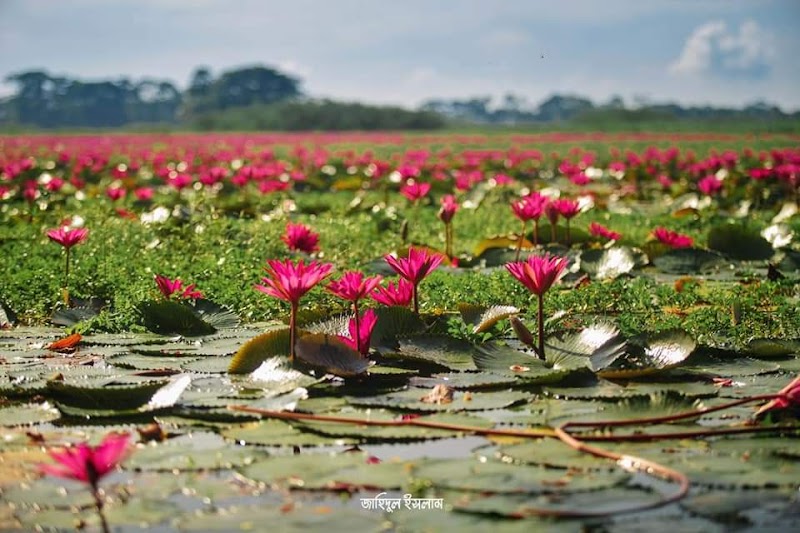
Celebrating Pohela Boishakh in Dhaka: A Vibrant Bengali New Year Experience
Pohela Boishakh, the Bengali New Year, transforms Dhaka into a vibrant festival of color, music, and tradition. Discover how to navigate this spirited celebration with practical tips paired with vivid community experiences that bring the heart of Bangladesh to life.
Wear Comfortable Footwear
Dhaka’s streets during Pohela Boishakh are crowded and uneven. Choose sturdy, breathable shoes with good grip to maintain comfort during hours of walking and standing.
Stay Hydrated with Local Refreshments
Vendors sell sugarcane juice and other hydrating drinks along the parade routes. Carry a water bottle but don’t hesitate to drink local fresh juices to stay energized.
Plan for Early Mornings
Festivities peak in the early hours with vibrant parades and performances. Arriving early means better access and a more immersive experience before crowds swell.
Keep Your Valuables Secure
Crowds can be dense around major procession points. Use secure bags and be mindful of belongings to protect against pickpocketing.
Celebrating Pohela Boishakh in Dhaka: A Vibrant Bengali New Year Experience
Pohela Boishakh, the Bengali New Year, bursts into life every year on April 14th across Dhaka, Dhaka Division. It's an event where tradition, energy, and community converge, transforming the city into a stage of colorful festivities that welcome the new year with heartfelt enthusiasm and deep cultural pride.
Start your day early in Old Dhaka’s bustling streets, where the air hums with anticipation. The scent of panta bhat (fermented rice) mingles with fresh marigolds and the steady rhythm of dhak drums that beckon crowds forward. Locals don vibrant attire—red and white saris or panjabis—and swirl in dances, their movements echoing centuries of tradition. This is no passive festival; you’re invited to join the procession, feeling the pulse of a culture fiercely alive.
The festivities extend beyond the streets. At Ramna Park and Suhrawardy Udyan, colorful fairs offer everything from traditional crafts to street food stalls, inviting both casual visitors and seasoned cultural travelers to soak in local flavors. Along the routes, singers challenge the air with classic Baul music, their voices weaving stories as old as the land itself. Each note dares you to listen deeper, to become part of their narrative.
Navigating Dhaka’s historic neighborhoods during Pohela Boishakh requires preparation. The crowds swell quickly, and the city’s narrow lanes press inward, creating a terrain of lively congestion rather than natural elevation, but one that demands stamina and awareness. Walking shoes with solid grip are a must, as is hydration—vendors selling jaggery-laden sugarcane juice line the way, offering a sweet, practical boost.
Timing your visit is critical; mornings bring the most energy with the rickshaw parades and street performances, while late afternoons invite a more reflective pace as families gather at local temples and community centers. Street vendors pack up and the sounds soften to the murmur of satisfied crowds.
Pohela Boishakh is not simply a celebration—it's a challenge to experience Dhaka in its most primal form. The city, fiercely itself, invites you to witness history in motion, to respect its cultural rhythm, and to emerge with a fresh understanding of Bengali identity. Embrace the festival not only as a spectator but as a participant, and you’ll find a journey marked by community, resilience, and joy.
Nearby Trips
All Adventures
Boat Charters
Water Activities
Adventures near Dhaka, Dhaka Division
Discover the unique and memorable adventures that make Dhaka, Dhaka Division special.
Frequently Asked Questions
What are the must-see events during Pohela Boishakh in Dhaka?
The early morning rickshaw parades along with traditional Baul music performances at Ramna Park offer the most immersive experiences. Additionally, visiting the Mangal Shobhajatra procession in Old Dhaka is a highlight.
Is it safe to attend Pohela Boishakh celebrations in Dhaka?
Yes, with common urban safety practices like keeping an eye on your belongings and staying hydrated, attending is safe. Be prepared for large crowds and avoid late-night festivities in isolated areas.
What cultural etiquette should visitors observe?
Respect local customs by dressing modestly and engaging respectfully with participants. When joining dances or rituals, follow the crowd’s lead without being intrusive.
Where can visitors find traditional foods during the festival?
Street vendors around Ramna Park and Old Dhaka serve traditional dishes such as panta bhat, hilsa fish preparations, and sweets like roshogolla. Sampling these foods provides deeper cultural insight.
Are there any lesser-known spots to experience Pohela Boishakh away from crowds?
Neighborhood parks like Suhrawardy Udyan offer a calmer space where local communities celebrate with music and food vendors, providing a more intimate look at the festival.
How environmentally sustainable are the celebrations?
While energy is high, waste management can be challenging due to crowd size. Visitors are encouraged to minimize plastic use and dispose of trash responsibly to support local efforts.
Recommended Gear
Comfortable walking shoes
Durable shoes will protect your feet on crowded, uneven streets and keep you comfortable throughout the day.
Reusable water bottle
Stay hydrated by carrying water; refill stations and local juice vendors are plentiful.
Sunhat or cap
Shield yourself from the strong mid-April sun during outdoor festivities.
Secure crossbody bag
Keep belongings safe yet accessible through busy, crowded conditions.
Local Insights
Hidden Gems
- "The backstreets of Old Dhaka where artisans handcraft traditional attire"
- "A quiet terrace overlooking the Mangal Shobhajatra route offers rare photo vantage points"
Wildlife
- "Common sparrows and urban kites engage with the festivities overhead"
- "Occasional sighting of local songbirds attracted by flower-laden streets"
History
"Pohela Boishakh roots trace back to agricultural cycles marking the new harvest, evolving over centuries into a city-wide cultural festival celebrating renewal and unity."
